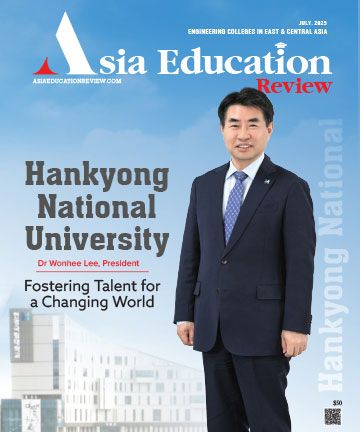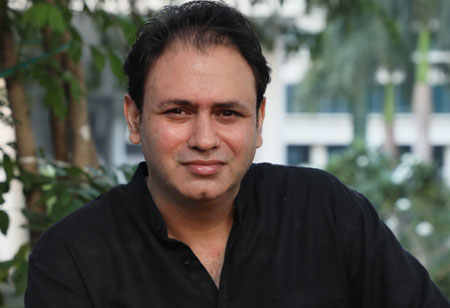Sharda University Uzbekistan: Bringing Global Standards in Engineering Education with Local Excellence

Prof. (Dr) Sanjay Pal
Rector
Engineering colleges in Central Asia are rapidly evolving to meet the growing demand for globally competitive education and technological advancement. With countries like Kazakhstan, Kyrgyzstan, and Uzbekistan investing heavily in higher education infrastructure, the region has become a promising destination for students aspiring to build careers in engineering and related fields. Uzbekistan, in particular, has positioned itself as a key educational hub, hosting numerous international branch campuses and ranking third in the world in this regard, only behind China and the United Arab Emirates. These institutions are not only fostering local talent but are also attracting students from across Eurasia and the CIS (Commonwealth of Independent States) countries.
In this dynamic educational landscape, Sharda University Uzbekistan stands out as a pioneering institution. Established in 2019 under a special presidential decree, it is the first independent private university in the Fergana Valley of Uzbekistan. The university is an extension of the Sharda Group’s vision to deliver globally benchmarked education, and it shares the strong academic legacy of Sharda University in India, which hosts students from over 95 countries.
Sharda University Uzbekistan offers industry-aligned programs in key disciplines including engineering (with a focus on computer science), management, economics, finance, and English. The Faculty of Engineering and Technology is particularly notable, being recognized as one of the top-ranked engineering faculties in the country. Here, education is deeply integrated with real-world application, preparing students to excel in the global job market. Courses are delivered by faculty members with rich international academic and research experience, ensuring that students receive education that meets global standards.
As part of Uzbekistan’s broader ambition to enhance its international education profile, Sharda University Uzbekistan plays a critical role in providing accessible, high-quality engineering education to students across Central Asia and beyond, fostering both academic excellence and cross-cultural understanding.
A Leading Hub for Computer Science & Engineering in Central Asia
Sharda University Uzbekistan has emerged as a top destination for engineering education in Central Asia and CIS countries, particularly in the field of Computer Science and Engineering (CSE). With specializations in Artificial Intelligence and Machine Learning, Cyber Security, and Information Technology, the university offers a rigorous four-year B.Tech program designed to equip students with skills in software development, digital transformation technologies, and critical areas like ethical hacking, full-stack development, machine learning and deep learning.
Recognized as one of Uzbekistan's top-ranked engineering schools, the Faculty of Engineering & Technology at Sharda University delivers industry-driven education rooted in strong mathematical and scientific fundamentals. The curriculum emphasizes real-world problem-solving and ethical competence in the professional sphere. For advanced learners, the M.Tech in Computer Science and Engineering provides deeper expertise in cutting-edge tools and technologies, preparing graduates for roles in software development, IT, and research. As the first private university in Andijan, with global roots in Sharda University India, it fosters a diverse, international community, offering students a truly global and future-ready education experience.
Advancing Engineering Education with Specialized Courses
Sharda University Uzbekistan has positioned itself as a center of excellence for engineering education in Central Asia, offering a Bachelor of Technology (B.Tech) in Computer Science and Engineering (CSE) with specialized tracks in Information Technology (IT), Artificial Intelligence & Machine Learning (AI & ML), and Cyber Security. Each program is tailored to meet industry demands, ranging from managing IT infrastructure and developing intelligent algorithms to protecting digital systems from cyber threats.
“The curriculum integrates core computing concepts such as programming languages, operating systems, databases, and software development, with a strong foundation in mathematics and algorithms. This design prepares graduates to address the region's growing digital needs and thrive in a technology-driven economy”, speaks Prof. (Dr) Sanjay Pal, Rector, Sharda University Uzbekistan.
Academic quality is reinforced through a license from the Ministry of Higher Education, Science and Innovation, and the use of HEMIS, a Higher Education Management Information System that enhances administrative efficiency, academic oversight, research management, and financial transparency.
As one of Uzbekistan’s top-ranked engineering schools, the Faculty of Engineering and Technology is committed to industry-aligned education. Strategic collaborations with global institutions and support from the Government of Andijan further strengthen the university’s academic ecosystem. These initiatives position Sharda University Uzbekistan as a forward-looking institution delivering world-class engineering education across Central Asia and the CIS region.
As part of Uzbekistan’s broader ambition to enhance its international education profile, Sharda University Uzbekistan plays a critical role in providing accessible, high-quality engineering education to students across Central Asia and beyond
Fostering Practical Skills & Holistic Development
Sharda University Uzbekistan (SUUz) supports the academic and professional growth of its engineering students through a robust combination of internships, scholarships, and extracurricular initiatives. A key feature of the B.Tech curriculum is that its is based on European Credit Transfer and Accumulation System (ECTS) and the focus is on project based learning, wherein each semester students have to build projects based on their learning to obtain 6 mandatory credits per semester. Moreover, students have to undergo a mandatory three-month internship before the 7th semester, carrying 6 academic credits.
This hands-on experience bridges classroom learning with real-world industry challenges. To further support this, the university established the Software Development Cell (SDC) in 2022, offering internships in software development and IT solutions. SUUz has also partnered with the Chamber of Commerce and Industry of Uzbekistan, expanding internship and placement opportunities, while its Industry- Connect sessions allow students to engage directly with professionals from the field.
In terms of financial support, SUUz offers merit-based scholarships ranging from 10 percent to 100 percent. Beyond academics, SUUz promotes holistic development through vibrant student clubs and societies. The Technical Society, founded in 2019, encourages peer-to-peer learning through webinars, workshops, coding competitions, and project exhibitions.
Additionally, clubs focused on culture, sports, arts, research, and debate, nurture leadership, creativity, and teamwork. Together, these initiatives empower students with both academic excellence and personal growth for success in the global arena.
Future Plans & Global Collaborations
Sharda University Uzbekistan is actively exploring new academic frontiers by planning to introduce Part-time Education and PhD programs in key domains such as computer science, management, economics and finance and English. Additionally, the university aims to launch Online Education and engage in consultancy projects with both the private sector and government bodies, enhancing its impact beyond traditional classroom settings.
On the international front, SUUz has signed collaboration agreements with 15 universities across 14 countries, with several institutions expressing interest in developing dual degree programs. These initiatives reflect the university’s commitment to academic innovation, global partnerships, and expanding educational access for a wider audience.
🍪 Do you like Cookies?
We use cookies to ensure you get the best experience on our website. Read more...





